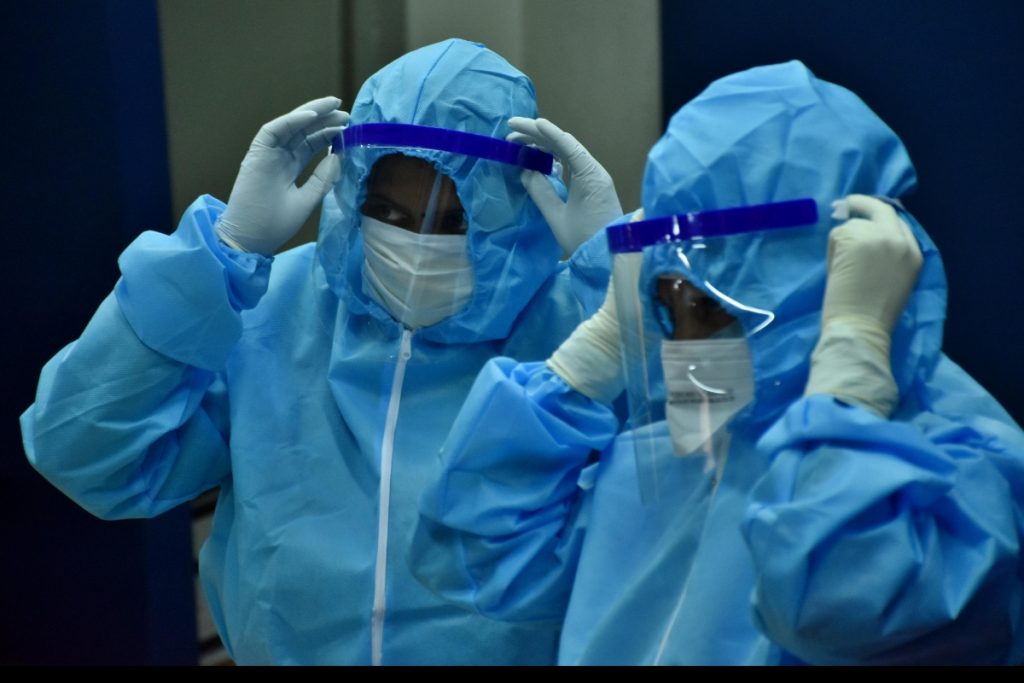Bengaluru, Dec 25: Karnataka Health Minister Dinesh Gundu Rao on Monday said about 35 cases of COVID-19 sub-variant JN.1 have been detected in the state so far.
A few recent deaths because of comorbidities along with COVID infection, too were found to be infected by JN.1, he said, the new sub-variant's infection spread is neither surprising or a sudden development, and asked people not to worry, but to be cautious and take precautions.
"We will share the detailed information tomorrow, exact figures, along with the breakup, as we have the COVID related cabinet sub-committee meeting. According to the report we have got, there are around 35 JN.1 positive cases in the state," Rao said.
Speaking to reporters here, he said, most of the cases are in Bengaluru, along with places like Mysuru among others.
ALSO READ: Karnataka cabinet sub-committee on COVID to meet tomorrow to decide further measures
"This was expected, as JN.1 is most prevalent and is spreading across the world now. The WHO, central government and the state government has been speaking about JN.1 infections...we had information about JN.1 infections, but for confirmation genome sequencing was done and through that we have come to know about 35 cases," he said, adding that the exact ratio and details will be shared later.
The state government's Cabinet sub-committee will meet tomorrow to discuss the recommendations made by the Technical Advisory Committee (TAC) on further measures to be taken to manage COVID-19 situation in the state.
Suggesting that there is no need to worry about JN.1 cases, the Minister reiterated there are no restrictions or guidelines regarding any activities or celebrations like New Year or gathering of people, anywhere.
"Anyhow, the cabinet sub-committee will discuss tomorrow the recommendations made by the TAC and decide what further measures need to be taken and will let you know. As of now there are no guidelines restricting any activities or celebrations or gathering of people," he added.
Pointing out that most of the cases according to his information were under home isolation and a very few were in hospital, Rao said details like age, travel history and the place they belong to will be shared tomorrow.
Without sharing further details, he said, "a few recent deaths because of comorbidities along with COVID infection -- they too were found to be infected by JN.1."
Reiterating that JN.1 infections were expected, Rao said, "no one should feel that it is a surprise or a sudden development...existing guidelines to control its spread are continuing as of now, in case any changes are made they will be made known. No need to worry, but remain cautious and take precautions."
Let the Truth be known. If you read VB and like VB, please be a VB Supporter and Help us deliver the Truth to one and all.
Panaji (PTI): As part of a crackdown against tourist establishments violating laws and safety norms in the aftermath of the Arpora fire tragedy, Goa authorities on Saturday sealed a renowned club at Vagator and revoked the fire department NOC of another club.
Cafe CO2 Goa, located on a cliff overlooking the Arabian Sea at Vagator beach in North Goa, was sealed. The move came two days after Goya Club, also in Vagator, was shut down for alleged violations of rules.
Elsewhere, campaigning for local body polls, AAP leader Arvind Kejriwal said the fire incident at Birch by Romeo Lane nightclub at Arpora, which claimed 25 lives on December 6, happened because the BJP government in the state was corrupt.
An inspection of Cafe CO2 Goa by a state government-appointed team revealed that the establishment, with a seating capacity of 250, did not possess a no-objection certificate (NOC) of the Fire and Emergency Services Department. The club, which sits atop Ozrant Cliff, also did not have structural stability, the team found.
The Fire and Emergency Services on Saturday also revoked the NOC issued to Diaz Pool Club and Bar at Anjuna as the fire extinguishers installed in the establishment were found to be inadequate, said divisional fire officer Shripad Gawas.
A notice was issued to Nitin Wadhwa, the partner of the club, he said in the order.
Campaigning at Chimbel village near Panaji in support of his party's Zilla Panchayat election candidate, Aam Aadmi Party leader Kejriwal said the nightclub fire at Arpora happened because of the "corruption of the Pramod Sawant-led state government."
"Why this fire incident happened? I read in the newspapers that the nightclub had no occupancy certificate, no building licence, no excise licence, no construction licence or trade licence. The entire club was illegal but still it was going on," he said.
"How could it go on? Couldn't Pramod Sawant or anyone else see it? I was told that hafta (bribe) was being paid," the former Delhi chief minister said.
A person can not work without bribing officials in the coastal state, Kejriwal said, alleging that officers, MLAs and even ministers are accepting bribes.





